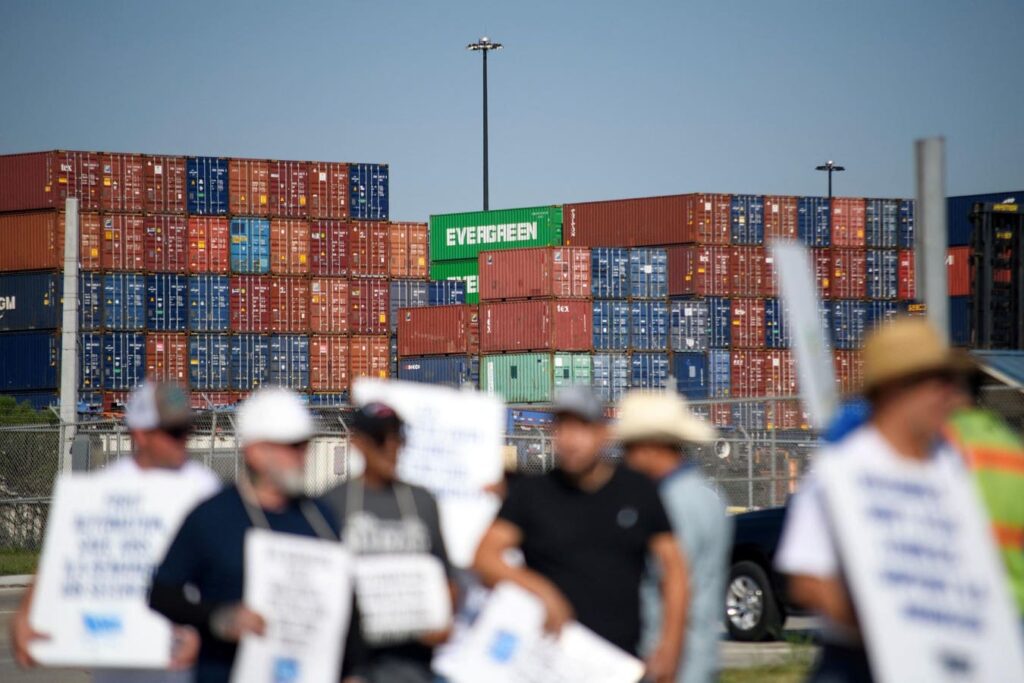Topline
Striking dockworkers and port employers reached a tentative agreement Thursday that will end the work stoppage, after the strike halted about half of the ocean shipping conducted by the U.S and raised concerns of potential economic shocks.
Key Facts
The tentative agreement includes a 62% wage increase over six years and means striking workers will return to work Friday, four days after they began their strike, according to The Wall Street Journal.
An expired contract between striking dockworkers and their employers will be extended through Jan. 15, 2025, Politico reported, noting the strike’s end is a relief for Democrats who feared losing union support ahead of the election next month.
The matter of automation in dock work is still up for negotiation despite the tentative agreement, the Journal reported, as workers remain concerned about automation resulting in large layoffs and fewer jobs for humans.
The International Longshoremen’s Association union represents the 45,000 striking workers and confirmed the end of the strike in a statement.
Get Forbes Breaking News Text Alerts: We’re launching text message alerts so you’ll always know the biggest stories shaping the day’s headlines. Text “Alerts” to (201) 335-0739 or sign up here.
Crucial Quote
“I want to thank the union workers, the carriers, and the port operators for acting patriotically to reopen our ports and ensure the availability of critical supplies for Hurricane Helene recovery and rebuilding,” President Joe Biden said in a statement Thursday evening. Biden had met with the United States Maritime Alliance, the organization representing shipping companies, and urged it to reach a deal with the union.
Big Number
36. That is how many ports were affected by the strike, according to the Associated Press, which noted consumer goods shortages could have materialized if the strike continued for more than a few weeks.
Key Background
The union sought wage increases and declined a 50% pay raise over six years before agreeing to the 62% bump. The strike threatened to set back the U.S. economy by anywhere from $2.1 billion to $7.5 billion each week it lasted, according to analyst estimates, though experts were split on the strike’s potential impact on inflation and how severe it would be on the economy. Bank of America analysts warned a prolonged strike could send “global congestion levels to all-time highs,” while Sevens Report analyst Tom Essaye believed a strike-related increase in inflation would be a temporary setback and should not have worsened the larger state of inflation.
Could Dock Worker Strike Spike Inflation? Experts Are Split. (Forbes)
Port Workers’ Strike Could Cost Billions—Here’s What To Know (Forbes)
Read the full article here
